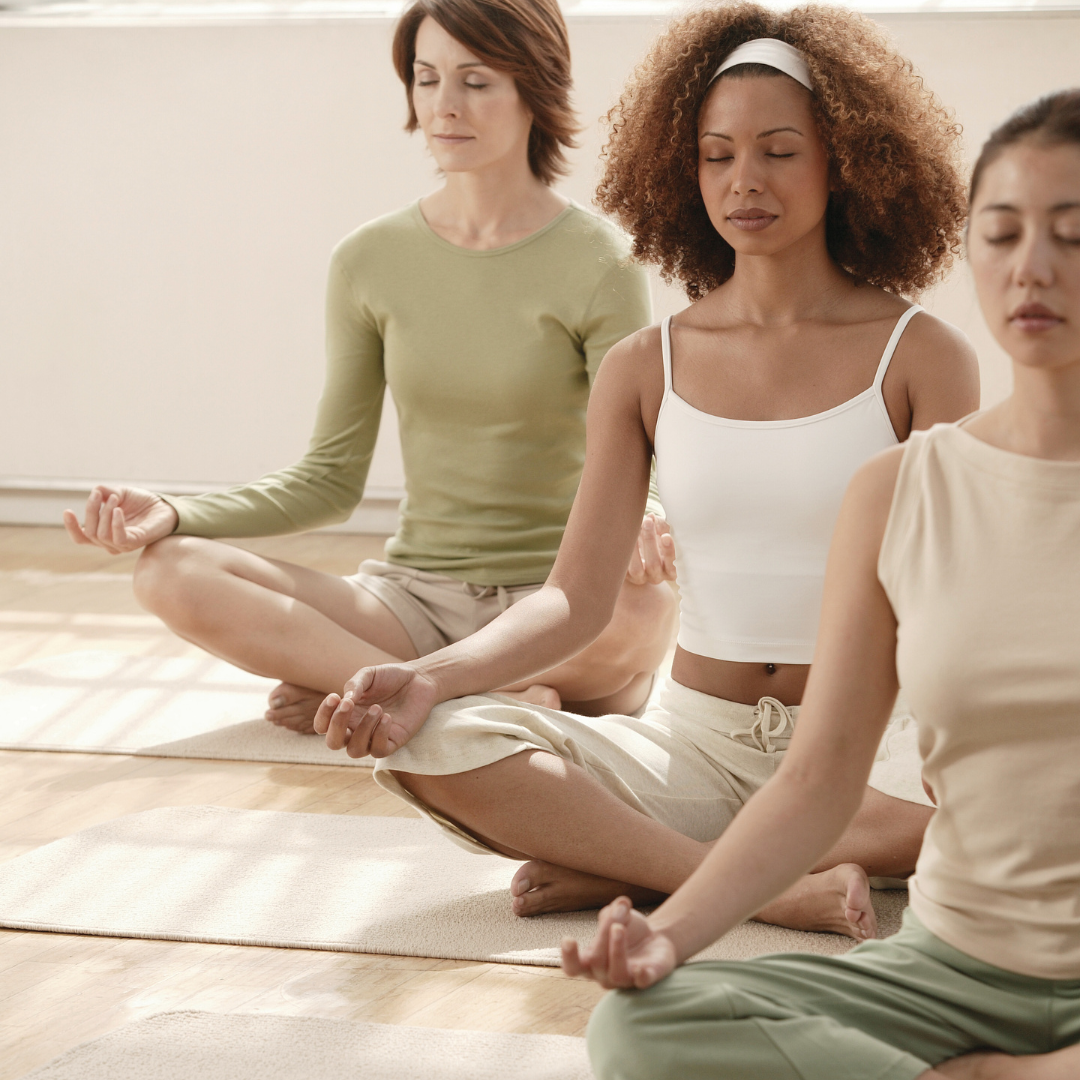Reading time: 6 minutes
New to yoga? If you want to do yoga as a beginner, you don't know exactly what to expect or how to start. Because before you can stand on your head, you really have to survive that first yoga class. And that can be a bit scary if you are not familiar with the yoga world.
That is why we are writing a follow-up blog to the podcast with Happy With Yoga , to prepare you as a yoga newbie before you step onto the mat.
We will give you all practical tips and tools and discuss the most frequently asked questions as a beginning Yogi!
What is yoga for beginners?
Yoga is not just a physical activity; it is a journey within, a path of self-discovery. For beginners, yoga can be a way to strengthen both body and mind, increase flexibility, and find inner peace in the midst of our often hectic lives.
Which form of yoga is suitable for beginners?
You have yoga in different styles that suit different needs and preferences. So you have Hatha, Vinyasa, Bikram, Yin and Ashtanga .
For beginners, Hatha yoga can be a good practice because of its slow pace and emphasis on basic positions and breathing techniques.
Vinyasa is also popular for its dynamic and flowing movements that synchronize with the breath.
Looking for a relaxing form of yoga? Or are you a woman in your menstrual phase? Then choose Yin yoga . Check here a nice YouTube account .
How do you start with yoga?
Getting started with yoga doesn’t require much other than an open mindset, a mat, and a quiet place.
Start with simple poses like downward dog (explained here) and mountain pose (explained here) and work your way up as you get familiar with the basics of yoga. You may want to find a yoga studio near you.
How often should I do yoga for results?
A common question among beginners is how often should they do yoga to actually see and feel results. The answer depends on several factors, including your goals, physical condition, and lifestyle.
- To truly experience the benefits of yoga, consistency is essential.
- Try to aim for at least three yoga practice per week. Choose something that is doable for you.
It is important to listen to your body and feel what is good for you. Some people like to do yoga every day, while others may find two to three times a week sufficient. Respect your own rhythm and needs.
Tip: As a beginner, it is important to start slowly and give your body time to get used to yoga.
What is the difference between yoga and pilates?
Yoga and Pilates are popular forms of exercise, but they differ in their origins, focus and approach:
Yoga:
- Origin: Ancient Indian, focuses on the connection between body and mind.
- Focus: Flexibility, balance, strength, relaxation and inner peace.
- Exercises: Asanas (postures), pranayama (breathing), meditation.
Pilates:
- Origin: Developed by Joseph Pilates, early 20th century.
- Focus: Core strength, stability, posture correction.
- Exercises: Focused on control, precision, breathing and flowing movements.
Is Yoga a Helpful Tool for Stress and Anxiety?
Yes, yoga is an effective tool to reduce stress and anxiety through physical exercise, breathing techniques, and meditation.
- It slows down your heart rate and makes you relax.
- It relieves tension in the neck, shoulders and back.
- It calms your mind.
- It makes you more aware of your body and breathing.
- It helps your body cope with stress.
- It stimulates positive changes in your brain, which reduces anxiety.
Can I do yoga during pregnancy?
Yes, you can safely practice yoga during pregnancy. Choose pregnancy-friendly poses, moderate the intensity, focus on your breathing and always consult your midwife or doctor for tailored advice. Yoga can help with flexibility, strength and relaxation, which contributes to a healthy pregnancy and birth.
Practical tips for beginners
- Be open-minded: Keep an open mind and see it as a new experience and challenge. Also during your yoga practice.
- Focus on yourself: Don't compare yourself to others; your yoga journey is unique and personal.
- Focus on your breathing: Breathe deeply and consciously; your breathing is the key to connecting your body and mind.
- Don't drink too much right before your class: Drinking enough water is important, but avoid drinking too much during or before your yoga class to avoid discomfort.
- Set an intention: Set a positive intention for each yoga class, whether it's strength, peace, or balance.
- Practice Regularly: Consistency is the key to progress; schedule regular time for your yoga classes.
- Accept that yoga is hard work: Yoga can be challenging, both physically and mentally. Embrace the challenges and see them as opportunities for growth.
- Listen to your body: To prevent injuries.
- Use props: Yoga props like blocks and straps can help you modify poses and make them more comfortable. Highly recommended!
Happy with yoga podcast
PS We recorded a podcast with: Happy with Yoga! It will be online soon. Can't wait and want to learn more about it? Check out this blog: Yoga for Beginners .
Summary:
This blog is written to support and encourage you on your yoga journey.
Whether you are looking for relaxation, flexibility or a healthy outlet, yoga offers a holistic approach to well-being. Begin your yoga journey today and discover the many benefits for your body and mind. Remember, your yoga journey begins with that first step onto your mat. Namaste!
Do you have any questions?
Do you have any questions after reading this blog? Don't hesitate to contact us free and customized advice or contact us directly. Our dedicated team is ready! Are you looking for more inspiration? Feel free to visit our Instagram page or check out our other recipes, blogs for a wealth of healthy and tasty ideas. We love sharing knowledge and tips to take your well-being to the next level!



